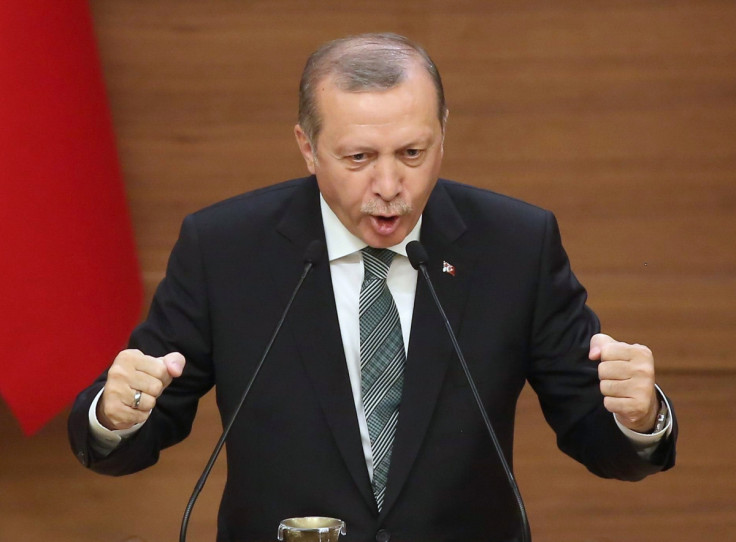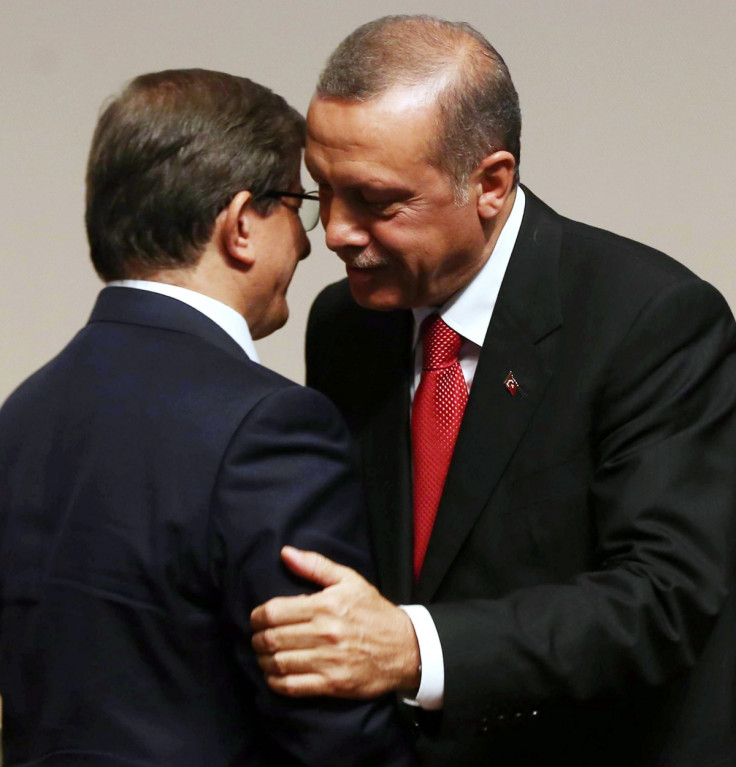Increasingly powerful President Erdogan wanted PM Davutoglu out for his Putin style reign

On 5 May 2016, the Turkish Prime Minister Ahmet Davutoglu announced that he is to step down from his party's leadership position and by extension from his prime ministerial post. This was following a 90 minute conversation the day before with President Recep Tayyip Erdogan at the so-called Presidential Palace in Ankara.
Although Davutoglu explained that this was his decision after the realisation that he has lost the support of his parliamentary party, it is obvious to everyone that this was Erdogan's desire and he was merely pushed into this so as to fulfil his grand master's wishes.
Of course the Turkish political system is not a stranger to the phenomena of prime ministers being pushed out of office. While this has previously been done by military coups or ultimatums, this time it was done by the only overarching power in the Turkish political system, the increasingly powerful president Erdogan.
Until 2014, Members of the Turkish Parliament elected Presidents in Turkey. The direct national vote was however introduced through the constitutional reforms of 2007 in the referendum. After serving as the PM for three terms, it was not a surprise when at the first round of elections Erdogan was elected as the first directly elected President of the modern Republic, gaining 51.8% of the national vote.
The roots of the current political turmoil in Turkey lie directly here. Traditionally, the president had a mostly ceremonial role, and the executive power was firmly with the office of the prime minister. However, being the first elected president of the republic, Erdogan declared from the outset that he will be "an active president".
Davutoglu refused play the passive role envisaged for him by Erdogan
While it was expected that Erdogan would be less politically active and remain politically neutral, cutting his ties with the AKP, instead Erdogan entirely disregarded the constitutional requirements and kept his authority over the AKP. And therefore, over the Executive and the Legislative bodies of the government, undermining the most important principle of liberal democracy: separation of powers. As soon as he became president, Erdogan called for a Putin-style Presidential system in Turkey.

Erdogan picked Davutoglu, convinced that Erdogan-Davutoglu partnership would be like the Putin-Medvedev relationship. That this would serve in the interests of Erdogan's political aspirations and hasten the empowerment of the presidency beyond the ceremonial roles granted by the constitution. However, it seems that Davutoglu refused to play the passive role envisaged for him by Erdogan.
As much as Davutoglu could, with little room to manoeuvre, he bid to assert his own independence. This meant disagreements not only between the President and the PM, but also between Erdogan loyalist parliamentary party (the AKP) and the PM. In particular, on major issues concerning the pre-trial detention of academics and journalists, and the possibility of resuming failed peace talks with Kurdish rebels.
Internationally, too, Davutoglu tried to operate independently and garner as much support as possible for his leadership. He tried to re-energise relations with the European Union and almost secured a Visa-free regime for Turks travelling to the Schengen region. Taking credit for this deal with the EU, together with attempting to develop close ties to world leaders such as Merkel and Obama, did not go down well with Erdogan. He began to treat Davutoglu as a threat to his authority and a high risk to his dream to be the executive President.
Davutoglu then was toppled in a matter of days. First, anonymous website the Pelican Files exposed the rift between the PM and the President to the public in a long and poorly written piece in which Davutoglu was described as a traitor. Second, on the afternoon of 4 May, the President criticised Davutoglu for forgetting how he got to the Prime Ministerial position.
After stepping down, Davutoglu confirmed that the AKP would now hold an extraordinary congress on May 22 to choose a new party leader.
In practice the Turkish political system is run by a single person who has no regard for the constitution or the legitimacy of the elected offices.
There are three important points one must make in relation to what this means for the Turkish political system, foreign policy and economy.
Turkey can still be recognised as a constitutional democracy with a parliamentary system, because this is what the constitution states, but in practice the Turkish political system is run by a single person who has no regard for the constitution or the legitimacy of the elected offices.
Second, it is not a secret that President Erdogan is not happy about Davutoglu's deal with the EU, and that he does not have a harmonious relationship with the Obama administration. Both the European Parliament's 'Turkey 2015 Human Rights Report' and Obama's criticism of press freedom in Turkey had seriously made Erdogan suspicious of the EU and the USA.
Erdogan described these entities as 'upper mindset' that may have been conspiring to topple him. Since he is operating in this spirit, it is hard to make predictions as to what may happen to the migrant deal and to Turkey's relations with the US.
My last point concerns the Turkish economy. Under performing economy is the only development in Turkey that can seriously threaten Erdogan's deeply carved throne.
Davutoglu's team in the government had some good economic minds, like Ali Babacan and Mehmet Simsek. They have been architects of the economic success Turkey has enjoyed in the last decade. They defended the independence of central bank against continued attacks by Erdogan and his camp on the issue of setting the interest rates.
But it is very likely that people like Babacan and Simsek will also disappear from the political scene. Depending who will replace these minds, and in the light of current fluctuating currency rates, the future of the Turkish economy does not look very promising.
Dr Gulay Icoz is an independent academic, interested in Turkish foreign policy, European politics and British politics.
© Copyright IBTimes 2024. All rights reserved.






